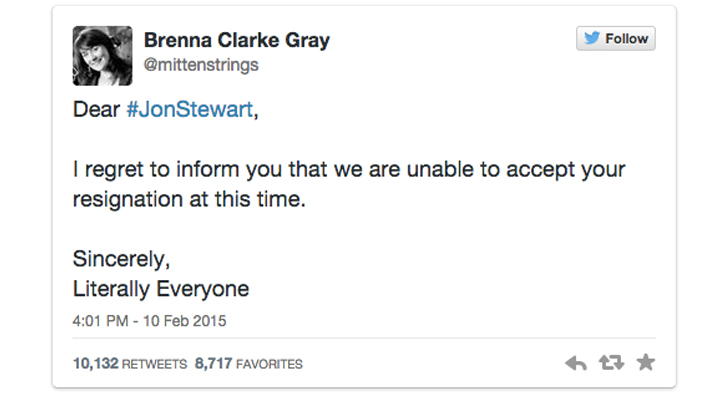Imagine that you are the head of Comedy Central and The Daily Show With Jon Stewart is going well, with great ratings, consistently great content and a solid place in the daily pop culture zeitgeist.
Then Jon decides to leave.
Or, imagine that you are the head of NBC News, and your Nightly News property is doing well, your host Brian Williams presents himself well in social media and on the late-night shows, and he holds his own against ABC and CBS.
Then, Brian tells a story on the air that is not true.
If you manage a broadcast property, the day when you replace your top on-air talent is coming; Maybe not today, maybe not tomorrow, but soon – and if past experience is an indicator – for the rest of your life. So let’s start working on that now, shall we?
Here are some thought-starters on how you can build on-air bench strength.
Identify key players and start building succession plans. Your big on-air stars should be pretty obvious, but also think about co-hosts, producers, web developers and players who the big stars rely upon. Consider who would step into each player’s shoes if, like Bob Simon of CBS 60 Minutes, they were killed in a car accident. These things happen.
Identify high-potential talent. This is the hard part. Look at the people inside your building, but also make it a regular practice to get out and network with other on-air performers. Look at people inside and outside your market. Look at people inside and outside your industry. Maybe they are not on-air now, but they could be. A great place to start looking for talented performers is YouTube. Get to know people over coffee, reach out to say hello and go to industry functions when you can. Your interview process starts now.
Be transparent and inclusive. Make it known that you are building a succession plan for the good of the organization. Reassure your current on-air talent that you are not looking to fire them, but thinking ahead to the future. Encourage your current star to mentor your future star. Let the word go forth that your station is a place that develops talent.
Regular coaching and development. Build training into the schedule. Have your up-and-coming people fill in during vacations. Involve them in the show planning process when you can, and have them participate in the execution of content. Think of how John Oliver came up through the ranks at The Daily Show. Consider giving talent a late-night or online time slot to develop their ideas and practice their craft, but make sure that you provide coaching and encouragement.
Hire only people who fit the succession plan. For example, don’t settle for an reporter who is excellent for covering a on location shot but who has no potential to move to a higher profile anchor position.
When you find good successors, keep them. Trevor Noah is wonderful, but I wonder if The Daily Show wishes that they had kept John Oliver around?
The only thing constant is change. Whether you replace an on-air performer tomorrow or ten years from now, the transition will be a challenge. Successful leaders are working constantly and consistently to keep a good head start on the process of both planned and unplanned transitions.

